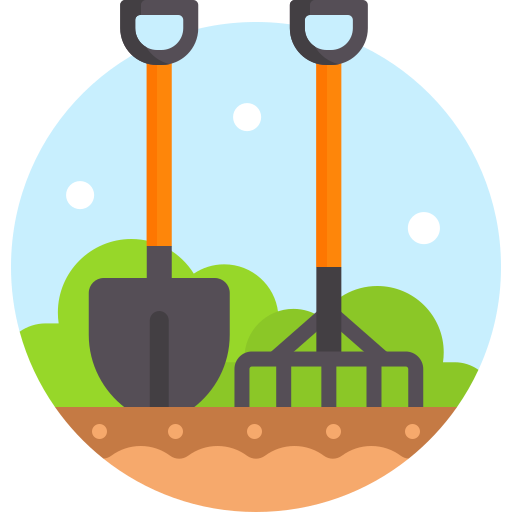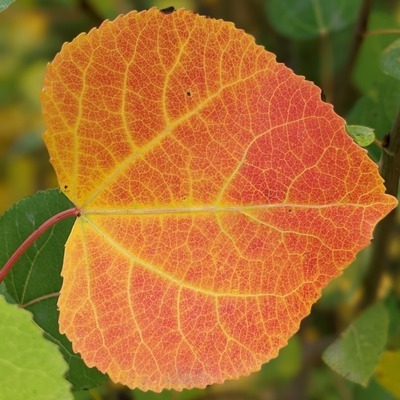Hi All - I’m thinking about getting a drip irrigation system for my garden and was curious if anyone here has tried one. Anything that has worked well, or not so much? Brand recommendations? Rain Bird and Hunter have come up in my searches so far. Other considerations a beginner wouldn’t think about? I’m in the US, so I also need it to be able to be shipped here.
Build your own. Helluva a lot cheaper, and more configurable for what you need. All you need is a cheap spout timer, some drip tubing, and a couple connectors. Any hardware store will have all the bits and pieces you need, but there are tons of supply sites online that can ship any bits you need.
You can what a kit looks like here for example. You could just buy a starter, or source the bits yourself for a little bit cheaper. Once you have a basic setup going, it’s dirt cheap to maintain and build off of in the future.
deleted by creator
I was curious how hard it would be to DIY, sounds like a good option. A starter kit is appealing just from the lower mental effort aspect, but it’s sounding like it’s not as complicated as I was thinking. Do you know if there is a big difference in quality between the drip tubing manufacturers? Or are there particular parts I should invest a little more in?
Stick to well known brands sold by retailers that specialize in this. Don’t just buy random branded stuff of Amazon, because you’re likely to get junk.
There are 2 main materials for irrigation tubing: polyethylene and vinyl. The main differences between them are that poly is stiffer and harder to bend in tight corners, but it’s probably more durable. Vinyl is (to me) a little easier to work with.
I don’t know if these kind of irrigation systems are available outside europe too, but maybe check out the Blumat drip irrigation system (DE) or similar systems.
The cones work as indicators and regulate a passive valve based on soil humidity. Completely analog, no smart shit inside. Just clay that expands/ contracts. And a stupid tube.
Or maybe check out Ollas
Drip irrigation is hard to get right. Either you waste a lot, or the plants dry up.
Those passive methods are more efficient and you can maybe even dissolve some mineral fertilizer in the water
I do a poor man’s version of that system. I have my drippers dripping into terra cotta watering spikes.
If you’re irrigating on hills, look into pressure compensated emitters.
Also if you’re practicing BDS, lots of drip stuff is made or owned in Israel
Good to know about the BDS trap, damn. Do you know offhand of any that aren’t? I’ll have to do more reading there.
Edit: for anyone else trying to untangle the BDS bit. It looks like Drip Works is an Israeli firm. Rain Bird, Hunter, and Drip Depot are US companies, but they distribute across Israel; Blumat is German/Austrian also distributes in Israel. Has been tricky to figure out because drip irrigation was created by an Israeli so tons of mentions about Israel just because of that. If I find anything more helpful I’ll try to update
Netafim and arkal are the two Israeli ones I’ve run across in Canada. Although it looks like arkal is owned by amiad now… Also Israeli…
And I second the thing about the adjustable and cleanable emitters. They’re great, just don’t lose the little piece of rubber inside.
Also, hillbilly way… Just stick a screw into your poly pipe, and you can dial the drip rate by fiddling with the screw…
Pressure compensating drippers seem to only work for me for a season. I’m not sure if they are getting clogged with debris, or just getting damaged from being out in the elements. I recently got drippers that are essentially like little spigots that you can dial up or down, and i end up just tweaking each one until the flow rate is good for all of them (also nice to tailor to each plant). The other benefit of those is that you can just open it all the way to blow out any sediment.
I abandoned drip irrigation for my raised beds. The vegetables weren’t happy with the approach, a lot of plastic is involved, and I was spending a lot of time futzing with parts. Instead: lawn sprinklers evenly water each bed and easily allow for seasonal crop augmentation.
Yea, I hate that they all seem to be plastic, but I was worried a sprinkler would increase the spread of blight or powdery mildew. I just know I’m not reliable enough to water the beds myself from about mid August on 😂 I wonder how feasible it would be to get silicone tubing
I’ve had good luck avoiding those by setting the irrigation timer so watering happens just before dawn. This way the water is absorbed by the soil before the sun then dries the foliage.
Oh that makes so much sense I don’t know why I hadn’t considered that. That might be what I do while I read up more on irrigation systems and angst about what to do, ha
I found Drip Depot’s YouTube videos indispensable for learning everything I needed to get mine set up even if you don’t choose to order from them.
I didn’t order from them at first but found their prices much better than what was available locally and they had a much broader selection as well.
I use a $40 hose timer and inline regulator filter. Works great!
This or soaker hoses. For drip irrigation, if you’re hooking up to a spigot, just keep in mind the pressure isn’t great so the longer your tubing, the less the end will get. I finally hooked mine up to our sprinkler system and it’s better, especially with raised beds.
As someone else mentioned, if you have raised beds and using a spigot, might not be the best option. But play around with it. Hands off watering will change your gardening life!! :)
Can you just increase the rate of perforation as you move down the hose
It is coming from a spigot off the side of the house, then would have to run probably 50ft to the garden. Our water pressure seems ok enough to run a splash pad by the garden, but I’m sure that’s different from the number of holes that would be in the beds. I’m looking to run hosing for at least 4 12x2ft beds, and I’m considering reconfiguring them to add about 2 more. Do you think that’s overambitious? Maybe I should start smaller and just try the first bed and see how that goes. I really really want that hands off life!!
I have a system not dissimilar. Spigot goes into a 1inch tube that has taps off it into the drip tubing for each bed row. The pressure issues I have are that it is too high sometimes and pushes off the end caps every once in a while.
Oh I never even considered the pressure being too high, good to know
I spent $12 on tubing and parts and just built my own. I have a solar timer on my hose bibb that runs it for a couple minutes every 6 hours or so. In the fall I wrap it all up and redeploy in the spring, I probably don’t have to do that but I do anyway. I don’t have to worry about batteries or drought or whatever, it’s sweet. If you’re on the fence about doing irrigation, you should do it.
Late to the party, by quite a big margin, but I have some thoughts having gone the commercial and DIY routes on this with two rounds of raised beds.
First, drip irrigation = great. Soaking the soil slowly is way better than flooding it and having a lot of the water simply roll off. It also keeps water of leaves, which is generally good for your plants.
I found homeowner grade commercial systems effective, but also fiddly and expensive. I was happy with the Rain Bird setup in my first garden after I installed an inline pressure regulator. The pressure regulator was necessary because we have very good water pressure out our spigot, even after 50’ of hose. The Rain Bird system didn’t offer much flexibility year over year. For example, if I planted a sprawling zucchini one year and wanted to put tomatoes or peppers there the next I was cutting hoses and swapping fittings as you can fit multiple tomatoes/peppers in in the space of one zucchini. Draining everything for winter was also fiddly and I would inventively lose a few parts to the freeze/thaw cycle. These systems are not easy to break down and reuse.
My original garden beds wound up getting torn out when we pulled out our pool and I went the DIY route with our second garden setup. Instead of running a hose to my beds, as I had before, I dug a trench and laid PVC pipe underground. Each of my beds has its own ball valve to help balance flow/pressure. On the house side, I PVC glued a hose adapter that I use to tie into a hose bib. I usually have a brass Y valve attached to it, so I can either send water to my garden or the hose.
None of the PVC pipes or fittings downstream of the ball valves have any PVC glue on them, so draining them for winter is super easy. Inside the beds I simply laid the PVC on the ground and drilled 1/8" holes into them every few inches. If you ask your favorite search engine, you can find a number of articles/videos showing variations of this technique. I do have a sprinkler in my raspberry bed, as raspberry canes are weeds and row style irrigation doesn’t work well for them.
Despite using drip irrigation, powdery mildew on squashes and gourds seems unavoidable due to my garden’s location. It’s flanked by trees on its eastern side, which means it doesn’t get direct sun until 10-11 in the morning.
… I hope this wall of text is helpful. Feel free to ask for follow ups.
@dominotheory Lots of excellent tutorials at dripdepot.com. They are a bit more expensive than others, but they stand behind what they sell. Twice they have replaced things I purchased that didn’t meet expectations without asking me to return the defective items.
A drip system running off an existing hose bibb is simple to install and doesn’t require expensive tools.






